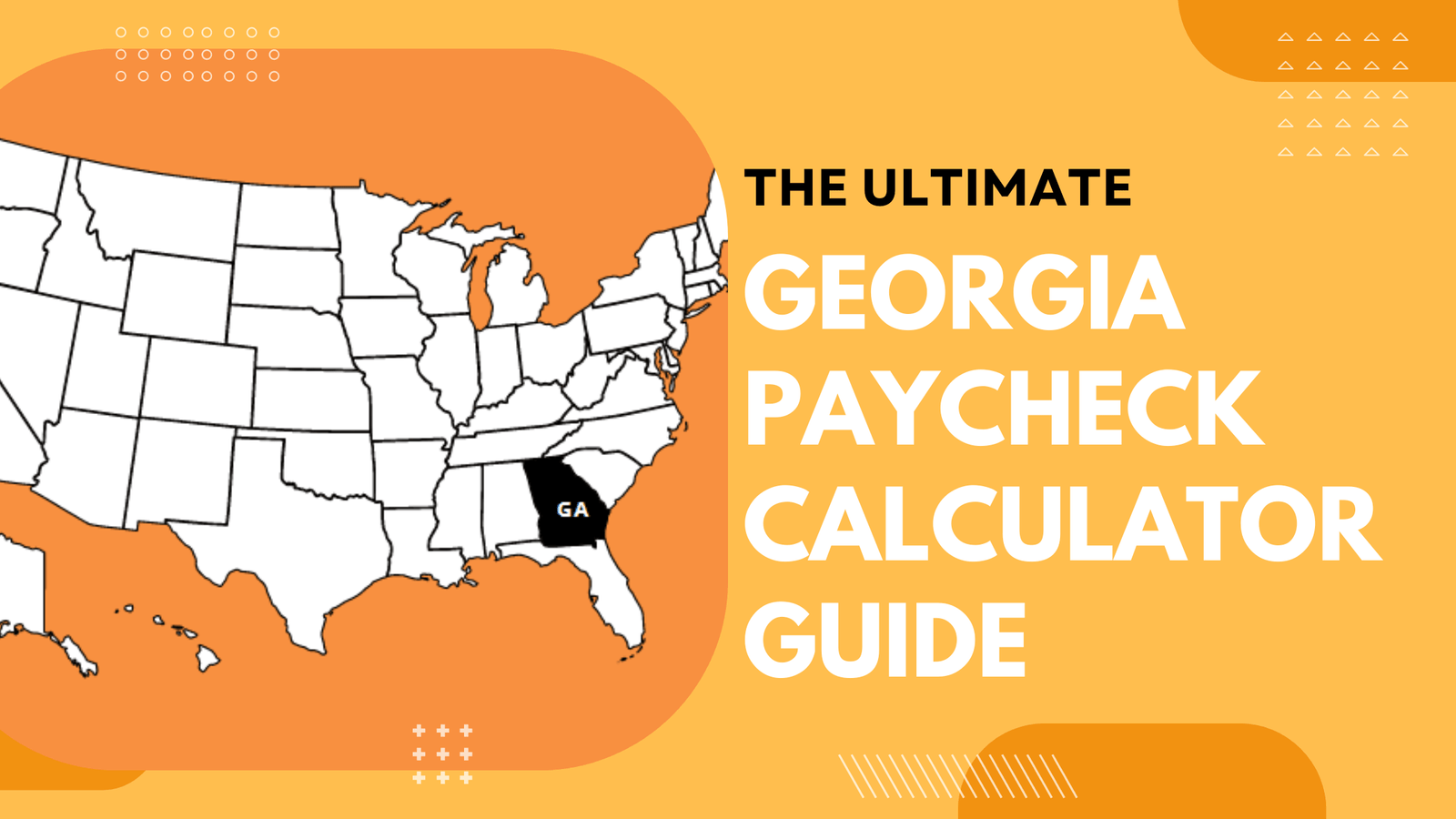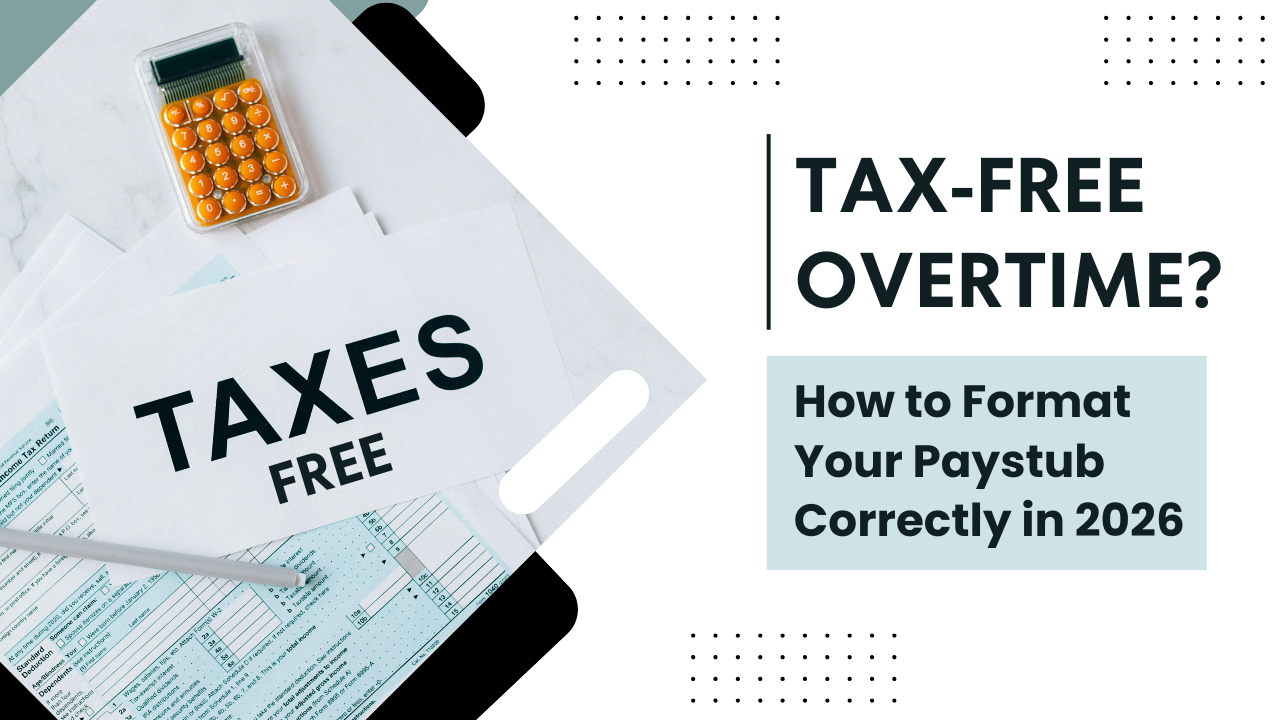Having it understood, then, the calculation of the paycheck gives an idea of how complex it is, especially for the new face, considering handling money. At the end of everything, understanding the Georgia pay stub computations will bring light and ease to mind.
This article will serve as a step-by-step guide to help you finally comprehend everything affecting the net pay.
First off is gross income, which is the basis of deductions. This is a fixed amount for employees on salary per pay period. For hourly employees, however, gross wages fluctuate and include performance bonuses, commissions, or overtime, depending on logged hours.
The initial subtraction is federal income tax withholding. This varies according to filing status, exemptions, and income level, with the IRS issuing tables for employers to follow. Using the withholding calculator on their website helps forecast this more precisely.
Known as FICA, Social Security and Medicare taxes are automatic cuts. Presently, the 6.2% Social Security rate applies to individual earnings up to $160,200. Flat 1.45% Medicare deductions have an unlimited range. An additional 0.9% of Medicare levies impact higher wage earners, over $200,000 solo or $250,000 joint.
While not required in all states, Georgians also face deductions for state income taxes. The percentage withdrawn aligns with one’s taxable income and filing status for the year.
Georgia maintains a progressive state income tax system where rates range from one to five point seventy-five per cent, depending on taxable earnings. The withheld amount is contingent on declared allowances from form G-4 and taxable income. Reviewing and revising the G-4 frequently is pivotal to avoiding unexpected tax burdens by ensuring accurate withholding.
Some Potential Deductions
Retirement Contributions
If contributing to a 401(k) or similar retirement scheme, those contributions are deducted from gross earnings. Traditional 401(k) investments reduce taxable income for state and federal taxes since they’re pre-tax. However, Roth 401(k) allotments are post-tax, so current taxable income isn’t lowered, yet withdrawals in retirement are untaxed.
Wellness Insurance Premiums
Many companies offer medical plans with premiums that are often deducted from pay. The exact nature of those deductions determines whether they minimize taxable income as pre-tax or remain post-tax.
Alternative Pre-Tax Reductions
Additional standard pre-tax deductions include Health Savings Account deposits, Flexible Spending Account contributions, and commuter benefits. Those reductions diminish taxable income, yielding tax relief.
Calculating Take-Home Pay
After all subtractions, the remaining net pay is received, commonly called take-home pay. This is the amount in each paycheck Calculator usable for regular costs. Here’s a demonstration:
Example Calculation
Assume you are a single filer living in Georgia, earning a gross salary of $60,000 annually.
Here’s how your paycheck might be calculated:
- Gross Pay: $60,000 annually or $5,000 per month.
- Federal Income Tax: Let’s estimate $500 monthly using the IRS tax tables.
- Social Security Tax: 6.2% of $5,000 = $310 monthly.
- Medicare Tax: 1.45% of $5,000 = $72.50 per month.
- Georgia State Income Tax: Estimating a mid-range rate of 4%, $5,000 * 4% = $200 monthly.
- Retirement Contribution: If contributing 5% to a 401(k), $5,000 * 5% = $250 monthly.
- Health Insurance Premium: Assume $150 per month.
Adding these up:
- Total Deductions: $500 (Federal) + $310 (Social Security) + $72.50 (Medicare) + $200 (State Tax) + $250 (401(k)) + $150 (Health Insurance) = $1,482.50
Finally, subtracting total deductions from gross pay:
- Net Pay: $5,000 – $1,482.50 = $3,517.50
Numerous online paycheck calculators simplify calculating deductions. Widely used tools include the ADP Paycheckr, which is renowned for comprehensiveness and usability across scenarios.
PaycheckCity provides both free and paid versions with nuanced breakdowns.
SmartAsset incorporates state-specific subtleties and illustrations for the transparent understanding of deductions.
Tax regulations and rates periodically update, so maintaining familiarity permits appropriately modifying withholdings. The IRS and the Georgia Department of Revenue serve as reliable sources for such changes.
Regularly checking W-4 and G-4 forms ensures withholdings stay current for life transitions like marriage, childbirth, or income fluctuations.
Maximize pre-tax advantages from employer-sponsored HSAs, FSAs, and retirement accounts to decrease taxable earnings. Tracking withholdings yearly prevents surprises during tax filing—consultation with a professional advisor and personalized guidance.
Conclusion
In conclusion, grasping the multifaceted nature of Georgia paycheck deductions may seem intricate initially. However, disentangling the process piece by piece renders it navigable.
Equipping oneself with the proper resources and keeping abreast of tax modifications ensures that one’s pay correctly represents one’s fiscal circumstances. It likewise aids in attaining objectives regarding financial management. Maintaining proficiency in calculations involves regular revisions, which cultivates the understanding necessary for monetary planning and earnings management.
Mastering the Maryland Paycheck Calculator: Your Ultimate Guide
FAQ's
What taxes are deducted from my paycheck in Georgia?
+
In Georgia, your paycheck will typically have federal income tax, state income tax, Social Security tax, and Medicare tax deducted. Additional deductions may include health insurance, retirement contributions, and other benefits.
How can I estimate my net pay in Georgia?
+
To estimate your net pay, start with your gross income and subtract all taxes and deductions. Using a paycheck calculator can simplify this process, ensuring accuracy by considering the latest tax rates and deductions specific to Georgia.
What is the state income tax rate in Georgia?
+
Georgia's state income tax rate is progressive, ranging from 1% to 5.75% based on your income level. The exact rate depends on your taxable income bracket.
Are there any local taxes in Georgia that affect my paycheck?
+
Georgia does not have local income taxes, but you may be subject to other local taxes such as city or county taxes for specific services. These generally do not impact payroll but can affect your overall tax obligations.





